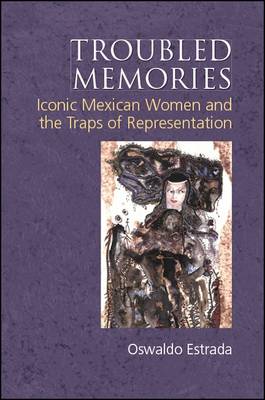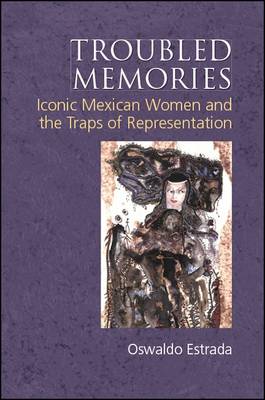
- Retrait gratuit dans votre magasin Club
- 7.000.000 titres dans notre catalogue
- Payer en toute sécurité
- Toujours un magasin près de chez vous
- Retrait gratuit dans votre magasin Club
- 7.000.0000 titres dans notre catalogue
- Payer en toute sécurité
- Toujours un magasin près de chez vous
Description
Analyzes literary and cultural representations of iconic Mexican women to explore how these reimaginings can undermine or perpetuate gender norms in contemporary Mexico.
2019 CHOICE Outstanding Academic Title
In Troubled Memories, Oswaldo Estrada traces the literary and cultural representations of several iconic Mexican women produced in the midst of neoliberalism, gender debates, and the widespread commodification of cultural memory. He examines recent fictionalizations of Malinche, Hernán Cortés's indigenous translator during the Conquest of Mexico; Sor Juana Inés de la Cruz, the famous Baroque intellectual of New Spain; Leona Vicario, a supporter of the Mexican War of Independence; the soldaderas of the Mexican Revolution; and Frida Kahlo, the tormented painter of the twentieth century. Long associated with gendered archetypes and symbols, these women have achieved mythical status in Mexican culture and continue to play a complex role in Mexican literature. Focusing on contemporary novels, plays, and chronicles in connection to films, television series, and corridos of the Mexican Revolution, Estrada interrogates how and why authors repeatedly recreate the lives of these historical women from contemporary perspectives, often generating hybrid narratives that fuse history, memory, and fiction. In so doing, he reveals the innovative and sometimes troublesome ways in which authors can challenge or perpetuate gendered conventions of writing women's lives.
Spécifications
Parties prenantes
- Auteur(s) :
- Editeur:
Contenu
- Nombre de pages :
- 260
- Langue:
- Anglais
- Collection :
Caractéristiques
- EAN:
- 9781438471891
- Date de parution :
- 01-10-18
- Format:
- Livre relié
- Format numérique:
- Genaaid
- Dimensions :
- 155 mm x 231 mm
- Poids :
- 635 g

Les avis
Nous publions uniquement les avis qui respectent les conditions requises. Consultez nos conditions pour les avis.






